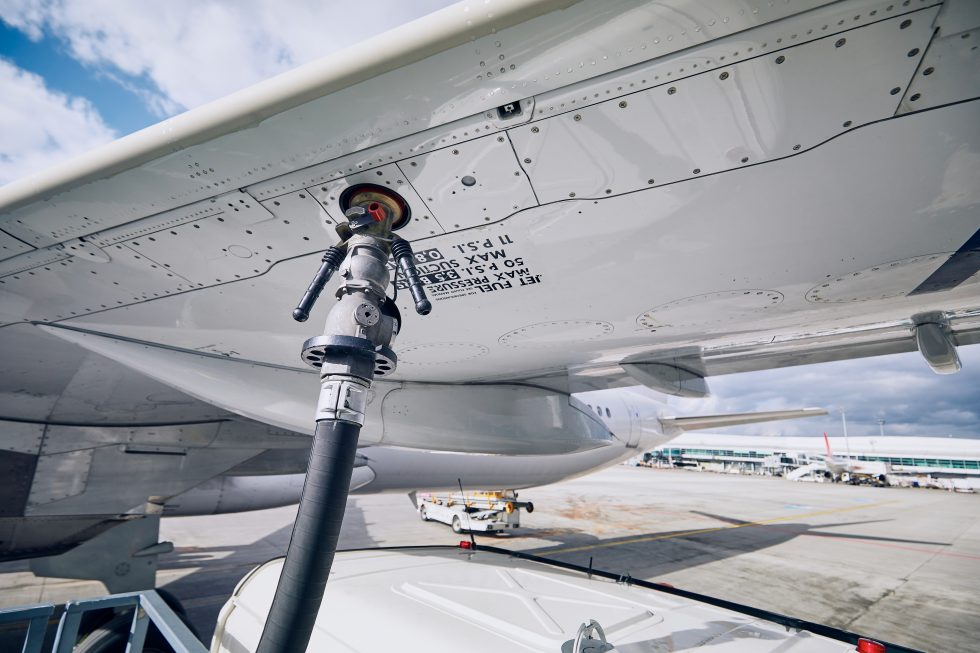The High Stakes of Fuel Reconciliation
The financial implications of fuel discrepancies are substantial. With the global aviation fuel market valued at $238.2 billion in 2024 and projected to reach $474.9 billion by 2034, even small percentage errors translate to significant monetary impact. Consider these scenarios:
Volume Discrepancies: A mere 0.5% discrepancy in fuel volume for a mid-sized airline consuming 200 million gallons annually represents 1 million gallons of unaccounted fuel—approximately $3-4 million at current prices.
Invoice Errors: Studies indicate that 2-3% of fuel invoices contain errors, ranging from incorrect volume calculations to misapplied taxes and fees. Without rigorous reconciliation, these errors typically favor the supplier.
Inventory Variances: Unexplained losses in fuel inventory—often attributed to measurement errors, temperature variations, or actual leakage—can represent substantial financial exposure and potential environmental liabilities.
Beyond the direct financial impact, unresolved discrepancies create operational inefficiencies, compliance risks, and strained relationships with suppliers and airport authorities. The challenge for fuel managers lies in identifying, investigating, and resolving these discrepancies efficiently and accurately.
Common Reconciliation Challenges
Aviation fuel managers face several persistent challenges in the reconciliation process:
Data Fragmentation: Fuel data typically resides in multiple systems—flight planning, operations, accounting, and supplier portals—making comprehensive reconciliation difficult.
Timing Differences: Discrepancies often arise from timing mismatches between when fuel is delivered, consumed, invoiced, and paid.
Measurement Variations: Different measurement methods and standards between suppliers and receivers create systematic variances that must be accounted for.
Currency and Price Fluctuations: For international operations, currency exchange rates and price adjustments create additional reconciliation complexity.
Resource Constraints: Many fuel departments operate with limited staff, making thorough reconciliation time-consuming and often incomplete.
Manual Processes: Despite technological advances, many organizations still rely on spreadsheets and manual comparisons for reconciliation, increasing error risk and limiting analysis capabilities.
Best Practices for Effective Reconciliation
Leading aviation organizations have developed systematic approaches to fuel reconciliation that minimize discrepancies and maximize financial control:
1. Establish Clear Tolerance Thresholds
Not all discrepancies warrant the same level of investigation. Establish tiered tolerance thresholds based on:
- Absolute value (e.g., discrepancies over $1,000)
- Percentage variance (e.g., variances exceeding 1%)
- Pattern recognition (e.g., consistent variances with specific suppliers)
These thresholds should be reviewed periodically and adjusted based on operational changes and reconciliation results.
2. Implement Standardized Measurement Protocols
Reduce measurement-related discrepancies by:
- Standardizing measurement units and conversion factors across all locations
- Calibrating measurement equipment regularly
- Documenting temperature and density adjustments consistently
- Training personnel on proper measurement techniques
3. Develop a Systematic Investigation Process
When discrepancies exceed tolerance thresholds, follow a structured investigation approach:
- Document the nature and extent of the discrepancy
- Identify potential causes based on historical patterns
- Gather supporting documentation from all relevant parties
- Escalate according to predefined criteria
- Track resolution and document root causes for future prevention
4. Leverage Technology for Automation
Modern fuel management systems can dramatically improve reconciliation efficiency:
- Automated data collection eliminates manual entry errors
- System-to-system integration reduces data transfer discrepancies
- Algorithmic matching identifies discrepancies instantly
- Exception-based workflows focus attention on material variances
- Digital audit trails provide comprehensive documentation
5. Establish Supplier Collaboration Protocols
Proactive engagement with fuel suppliers improves reconciliation outcomes:
- Develop clear communication channels for discrepancy resolution
- Establish joint reconciliation procedures and timelines
- Create shared visibility into key measurement points
- Implement regular reconciliation meetings to address systemic issues
6. Conduct Regular Reconciliation Audits
Periodic audits of the reconciliation process itself ensure ongoing effectiveness:
- Review unresolved discrepancies for patterns and systemic issues
- Assess the effectiveness of tolerance thresholds and investigation procedures
- Evaluate the timeliness of discrepancy resolution
- Quantify the financial impact of reconciliation activities
How FuelCounter Automates Reconciliation
FuelCounter’s advanced reconciliation capabilities transform this traditionally challenging process into a streamlined, efficient operation:
Multi-point Matching: Automated comparison of planned uplift, actual delivery, inventory changes, and supplier invoices in a single integrated platform.
Intelligent Variance Detection: Machine learning algorithms that identify anomalies and potential errors based on historical patterns and industry benchmarks.
Configurable Tolerance Management: Customizable thresholds and escalation paths tailored to your organization’s specific requirements and risk tolerance.
Digital Audit Trail: Comprehensive documentation of all reconciliation activities, supporting both internal controls and external audits.
Supplier Integration: Secure data exchange with supplier systems, reducing manual data entry and accelerating discrepancy resolution.
Analytics and Reporting: Detailed insights into reconciliation performance, including financial impact, resolution time, and root cause analysis.
Real-World Reconciliation Success
A major international airline implemented automated reconciliation processes and discovered systematic discrepancies at multiple locations. By addressing these issues, they:
- Recovered $2.7 million in historical overcharges
- Reduced ongoing fuel costs by 0.8% through improved accuracy
- Decreased reconciliation staff requirements by 60%
- Shortened the reconciliation cycle from 45 days to 5 days
- Improved supplier relationships through faster, more accurate settlements
Similarly, a regional airport authority implemented automated reconciliation for their fuel farm operations and identified inventory losses that had previously gone undetected. By resolving these issues, they improved inventory accuracy by 99.8% and avoided potential environmental compliance penalties.
Taking Action
For aviation fuel managers seeking to improve their reconciliation processes, consider these initial steps:
- Assess your current reconciliation effectiveness by quantifying unresolved discrepancies and their financial impact
- Evaluate the efficiency of your reconciliation processes, including staff time requirements and cycle time
- Identify technology gaps that may be limiting your reconciliation capabilities
- Develop a roadmap for process improvement, including both procedural changes and technology enhancements
FuelCounter provides a comprehensive solution for aviation fuel reconciliation, automating complex processes and providing the visibility needed to identify and resolve discrepancies quickly and accurately.







